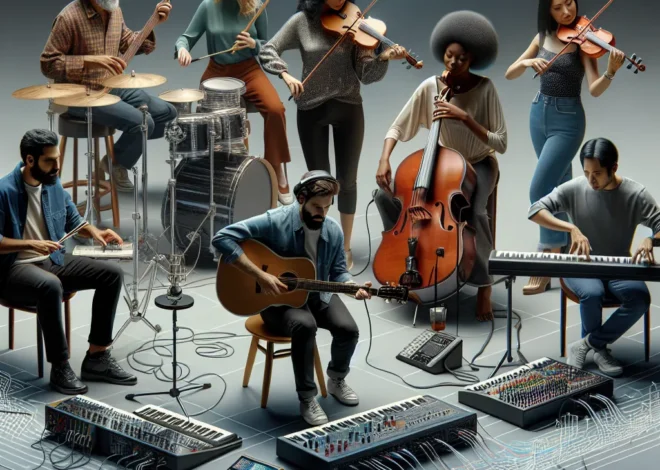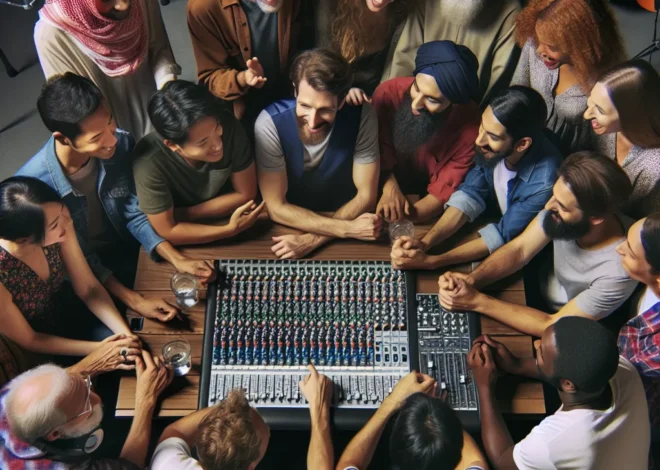
The Evolution of Bands: From Garage to Global
The Rise of Garage Bands: A Journey from Humble Beginnings
Garage bands have played a significant role in the evolution of the music industry, shaping the sound and culture of popular music. Originating in the 1960s, garage bands were characterized by their raw and unpolished sound, often performed by amateur musicians in their own garages or basements. These bands gained momentum as they played at local parties, high school dances, and small venues, often with a DIY approach to recording and distributing their music.
What started as a grassroots movement eventually led to the rise of garage bands as a recognizable and influential force in the music world. As technology advanced and became more accessible, these bands were able to reach a wider audience through the distribution of demo tapes, vinyl records, and later, online platforms.
With their rebellious and independent spirit, garage bands contributed to the diversification of music genres and the democratization of the music industry. Their influence can still be seen today, with many globally renowned artists having humble beginnings in garage bands, showcasing the enduring impact and relevance of this grassroots phenomenon.
The journey of garage bands from local obscurity to global recognition is a testament to the power of passion, creativity, and community in shaping the music landscape. As the music industry continues to evolve, the spirit of garage bands lives on, inspiring new generations of musicians to pick up their instruments, plug in their amps, and keep the raw, visceral energy of garage rock alive.
From Local Gigs to International Tours: The Evolution of Band Dynamics
As bands progress in their careers, their dynamics evolve from playing local gigs in small venues to embarking on international tours that take them across the globe. This evolution is a result of numerous factors, including growing fan base, industry connections, and the band’s own dedication and hard work.
Initially, bands often start out by performing at local bars, small clubs, and even in garages, honing their craft and building a local following. As their reputation spreads and their music resonates with more and more people, they begin to attract the attention of industry professionals such as talent scouts, music agents, and record labels. This marks a crucial turning point for many bands, as it opens up opportunities for larger venues, festivals, and eventually international tours.
International tours bring about a significant shift in band dynamics. The challenges of performing in unfamiliar territories, dealing with diverse audiences, and adapting to different cultures all contribute to the band’s growth and cohesion. Moreover, the logistics of organizing and sustaining a successful international tour require a higher level of professionalism, teamwork, and strategic planning from the band members and their supporting crew.
As bands transition from local gigs to international tours, their dynamics also change in terms of interpersonal relationships and creative processes. The pressures and rewards of touring on a global scale can both strengthen and strain the bonds between band members. The collaborative songwriting and musical experimentation that often thrive in the early stages may face new challenges as the band navigates the demands of a busy touring schedule and the expectations of a larger, more diverse fan base.
In conclusion, the evolution of band dynamics from local gigs to international tours is a complex and transformative journey. It requires not only musical talent and dedication but also adaptability, resilience, and a deep understanding of the ever-changing music industry landscape. Bands that successfully navigate this evolution often emerge stronger, more versatile, and poised for long-term success on the global stage.
The Digital Revolution: How Technology Changed the Music Industry for Bands
The digital revolution has profoundly transformed the music industry, offering bands unprecedented opportunities to reach global audiences. With the advent of digital technology, bands can now produce, distribute, and promote their music without the need for costly investments in physical production. Moreover, online platforms such as social media, music streaming services, and digital marketing tools have enabled bands to connect directly with their fans, bypassing traditional intermediaries.
Bands are leveraging social media to engage with fans, build a loyal following, and promote their music. Platforms like Instagram, Facebook, and Twitter provide bands with the ability to share updates, behind-the-scenes content, and engage in direct conversations with fans, creating a sense of community and intimacy that was previously unattainable.
Furthermore, the rise of music streaming services has revolutionized music consumption, allowing bands to reach global audiences instantaneously. Platforms like Spotify, Apple Music, and YouTube have become vital for bands to showcase their music, reach new fans, and generate revenue through streaming royalties.
Additionally, digital marketing tools such as targeted advertising, email campaigns, and data analytics have empowered bands to identify and connect with their target audience with precision. This level of access to data and audience insights was previously unavailable, enabling bands to tailor their promotional efforts and music releases for maximum impact.
In conclusion, the digital revolution has democratized the music industry, offering bands the opportunity to expand their reach from garage-based beginnings to a global scale. Embracing digital technology has become essential for bands to thrive in an increasingly competitive and interconnected music landscape.
Remember to include your targeted keywords and phrases to improve SEO and optimize the article for search engines: “digital revolution in music industry,” “music streaming services,” “social media for bands,” “digital marketing for musicians,” and “global reach for bands.”
Global Impact: Bands’ Influence on Culture and Society
The evolution of bands has not only transformed the music industry but has also had a profound global impact on culture and society. From their humble beginnings in garages to achieving global fame, bands have influenced and shaped cultural trends, societal norms, and even political movements.
One of the most significant ways in which bands have made a global impact is through their music. Their songs often become anthems for various social movements, such as the civil rights movement in the United States or the anti-apartheid movement in South Africa. The lyrics and melodies crafted by bands have the power to inspire, unite, and mobilize people across the world, transcending language and cultural barriers.
Bands also serve as cultural ambassadors, bringing the sounds, styles, and attitudes of their origins to international stages. The global reach of bands has led to the exchange and fusion of musical genres, leading to a rich tapestry of diverse sounds that reflect the interconnected nature of modern society.
Moreover, the influence of bands extends beyond music and into fashion, art, and even language. The iconic images and personas of band members often become emblematic of particular eras, influencing fashion trends and popular culture. Their impact on language is evident in the widespread adoption of band-related phrases and slogans in everyday discourse.
In conclusion, the evolution of bands from local garage acts to global sensations has left an indelible mark on culture and society. Their music, style, and ethos have transcended borders, shaping the way we express ourselves and interact with the world. As bands continue to evolve and push boundaries, their influence on global culture and society is sure to endure.



